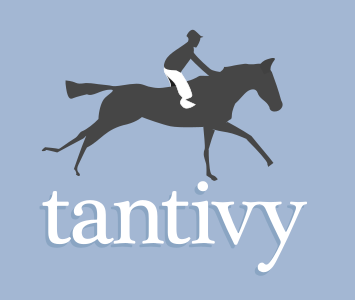summavy
| Crates.io | summavy |
| lib.rs | summavy |
| version | 0.25.3 |
| created_at | 2022-10-13 15:37:31.288193+00 |
| updated_at | 2023-01-13 12:11:05.99079+00 |
| description | Search engine library |
| homepage | https://github.com/izihawa/tantivy |
| repository | https://github.com/izihawa/tantivy |
| max_upload_size | |
| id | 687258 |
| size | 26,363,149 |
documentation
README

Tantivy is a full-text search engine library written in Rust.
It is closer to Apache Lucene than to Elasticsearch or Apache Solr in the sense it is not an off-the-shelf search engine server, but rather a crate that can be used to build such a search engine.
Tantivy is, in fact, strongly inspired by Lucene's design.
If you are looking for an alternative to Elasticsearch or Apache Solr, check out Quickwit, our search engine built on top of Tantivy.
Benchmark
The following benchmark breakdowns performance for different types of queries/collections.
Your mileage WILL vary depending on the nature of queries and their load.

Features
- Full-text search
- Configurable tokenizer (stemming available for 17 Latin languages) with third party support for Chinese (tantivy-jieba and cang-jie), Japanese (lindera, Vaporetto, and tantivy-tokenizer-tiny-segmenter) and Korean (lindera + lindera-ko-dic-builder)
- Fast (check out the :racehorse: :sparkles: benchmark :sparkles: :racehorse:)
- Tiny startup time (<10ms), perfect for command-line tools
- BM25 scoring (the same as Lucene)
- Natural query language (e.g.
(michael AND jackson) OR "king of pop") - Phrase queries search (e.g.
"michael jackson") - Incremental indexing
- Multithreaded indexing (indexing English Wikipedia takes < 3 minutes on my desktop)
- Mmap directory
- SIMD integer compression when the platform/CPU includes the SSE2 instruction set
- Single valued and multivalued u64, i64, and f64 fast fields (equivalent of doc values in Lucene)
&[u8]fast fields- Text, i64, u64, f64, dates, and hierarchical facet fields
- Compressed document store (LZ4, Zstd, None, Brotli, Snap)
- Range queries
- Faceted search
- Configurable indexing (optional term frequency and position indexing)
- JSON Field
- Aggregation Collector: histogram, range buckets, average, and stats metrics
- LogMergePolicy with deletes
- Searcher Warmer API
- Cheesy logo with a horse
Non-features
Distributed search is out of the scope of Tantivy, but if you are looking for this feature, check out Quickwit.
Getting started
Tantivy works on stable Rust and supports Linux, macOS, and Windows.
- Tantivy's simple search example
- tantivy-cli and its tutorial -
tantivy-cliis an actual command-line interface that makes it easy for you to create a search engine, index documents, and search via the CLI or a small server with a REST API. It walks you through getting a Wikipedia search engine up and running in a few minutes. - Reference doc for the last released version
How can I support this project?
There are many ways to support this project.
- Use Tantivy and tell us about your experience on Discord or by email (paul.masurel@gmail.com)
- Report bugs
- Write a blog post
- Help with documentation by asking questions or submitting PRs
- Contribute code (you can join our Discord server)
- Talk about Tantivy around you
Contributing code
We use the GitHub Pull Request workflow: reference a GitHub ticket and/or include a comprehensive commit message when opening a PR.
Tokenizer
When implementing a tokenizer for tantivy depend on the tantivy-tokenizer-api crate.
Minimum supported Rust version
Tantivy currently requires at least Rust 1.62 or later to compile.
Clone and build locally
Tantivy compiles on stable Rust. To check out and run tests, you can simply run:
git clone https://github.com/quickwit-oss/tantivy.git
cd tantivy
cargo build
Run tests
Some tests will not run with just cargo test because of fail-rs.
To run the tests exhaustively, run ./run-tests.sh.
Debug
You might find it useful to step through the programme with a debugger.
A failing test
Make sure you haven't run cargo clean after the most recent cargo test or cargo build to guarantee that the target/ directory exists. Use this bash script to find the name of the most recent debug build of Tantivy and run it under rust-gdb:
find target/debug/ -maxdepth 1 -executable -type f -name "tantivy*" -printf '%TY-%Tm-%Td %TT %p\n' | sort -r | cut -d " " -f 3 | xargs -I RECENT_DBG_TANTIVY rust-gdb RECENT_DBG_TANTIVY
Now that you are in rust-gdb, you can set breakpoints on lines and methods that match your source code and run the debug executable with flags that you normally pass to cargo test like this:
$gdb run --test-threads 1 --test $NAME_OF_TEST
An example
By default, rustc compiles everything in the examples/ directory in debug mode. This makes it easy for you to make examples to reproduce bugs:
rust-gdb target/debug/examples/$EXAMPLE_NAME
$ gdb run
Companies Using Tantivy
![]()
![]()
![]()
![]()
![]()
![]()
FAQ
Can I use Tantivy in other languages?
- Python → tantivy-py
- Ruby → tantiny
You can also find other bindings on GitHub but they may be less maintained.
What are some examples of Tantivy use?
- seshat: A matrix message database/indexer
- tantiny: Tiny full-text search for Ruby
- lnx: adaptable, typo tolerant search engine with a REST API
- and more!
On average, how much faster is Tantivy compared to Lucene?
- According to our search latency benchmark, Tantivy is approximately 2x faster than Lucene.
Does tantivy support incremental indexing?
- Yes.
How can I edit documents?
- Data in tantivy is immutable. To edit a document, the document needs to be deleted and reindexed.
When will my documents be searchable during indexing?
- Documents will be searchable after a
commitis called on anIndexWriter. ExistingIndexReaders will also need to be reloaded in order to reflect the changes. Finally, changes are only visible to newly acquiredSearcher.

